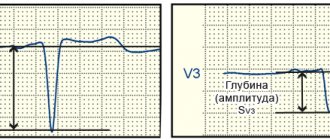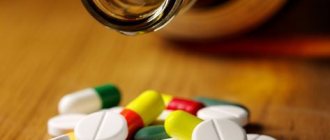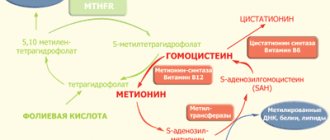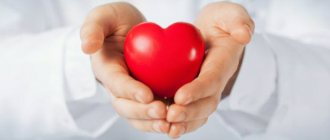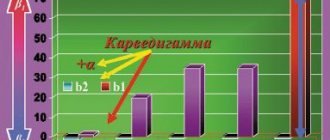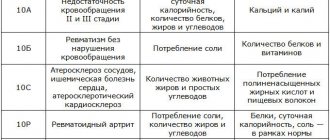Author Angela Antonova
22.06.2020 13:40
Health » Health and prevention
Hypertension is a disease of the nation. More than a third of the population suffers from this disease to varying degrees. And our condition depends on what we eat. We are what we eat. But we essentially don’t even have official dietetics – neither as a service, nor as a science and practice. How much salt can and should be consumed if you have hypertension? About all this and much more live at the Pravda video studio. Ru was told by Doctor of Medical Sciences, Professor of Samara State Medical University Yan Vlasov.
Read the beginning of the interview:
Hypertension: every diagnosis has its own age
Hypertension I am even more dangerous hidden
Excessive salt intake as a risk factor for cardiovascular disease
08.Sep.2021
The World Health Organization recommends consuming no more than 5 grams of salt per day. However, most of the planet's inhabitants eat almost 3-4 times more per day. The following symptoms may indicate excess salt in the body:
High blood pressure
The reason is that sodium, which is part of the spice, retains excess fluid in the body, which increases the load on the heart. In the case when at first glance it seems that the pressure is rising for no apparent reason, it is quite possible that an excessively salty diet is to blame. In this case, you should bring your daily sodium intake to the allowed 3-5 grams as quickly as possible, otherwise high blood pressure may develop into a chronic disease.
Dry mouth
This symptom is most often a consequence of dehydration. But if a glass of water still doesn’t help quench your thirst and your dry mouth is still noticeable, this is a sure signal that it’s time to reconsider your diet. It is possible that there is too much salt in your diet. Salty foods cause drying of the oral mucosa. In such cases, dry mouth is not a symptom of general dehydration. And this, by the way, is not just an unpleasant symptom. If dryness persists, over time it can negatively affect the functioning of your taste buds.
Edema
Excess salt in the body causes too much fluid to accumulate in the tissues. As a result, swelling appears. By the way, women are more prone to the formation of edema due to monthly hormonal fluctuations. Some of the first signs indicating excess salt in the body are swollen fingers and ankles, as well as bags under the eyes. This condition is caused by the retention of excess moisture in the tissues. In addition, excess sodium causes the release of hormones, which also retain excess moisture in the body. Edema is not only an aesthetic problem. In most cases, this symptom may indicate the presence of serious diseases: kidney, heart or liver failure.
Kidney pain
If you experience lower back pain even occasionally, this may indicate a problem with your kidneys. A tendency to kidney diseases may be the result of excessive consumption of salty foods. For example, if the body contains a lot of sodium, then over time this leads to calcification of urine and, consequently, the development of urolithiasis. If a person already has problems with kidney function, then salt in his diet should be kept to a minimum.
Chest pain
People who abuse salt often experience chest pain. This signal should not be neglected: in many cases it can indicate the development of a serious cardiovascular disease. Lovers of salty foods should know that sodium in large quantities has a destructive effect on blood vessels. In particular, damage to the arteries caused by salt can cause hypertension and strokes, and if the damage occurs in the veins, atherosclerosis may develop.
Headache
People who consume large amounts of salt often complain of severe throbbing headaches in the forehead. Sometimes headaches in salty food lovers may appear in the back of the head. This is a very alarming signal, as it indicates an increase in blood pressure and the possible development of hypertension.
Frequent urination
When too much sodium accumulates in the tissues, the kidneys are activated and try to remove the excess chemical element from the body as quickly as possible. In such cases, frequent urge to go to the toilet is possible, including at night.
Bloating
Bloating is another possible signal from the body that there is too much sodium. The fact is that salt contributes to the accumulation of unprocessed food particles in the intestines. After some time, these lumps begin to rot, which is accompanied by the formation of gas bubbles. You can get rid of the problem with the help of sorbents and probiotics, as well as by giving up excess salt.
Afterword
In addition to all that has been said, excess salt also affects the pH of the body - making it more acidic. Violation of the acid-base balance is accompanied by decreased immunity, chronic fatigue and impaired concentration. If too much sodium accumulates in the body, the kidneys have to work twice as hard to get rid of the excess. And this leads to rapid “wear and tear” of the organ. The danger of this is that at a certain point the kidneys may simply stop performing their functions. Uncontrolled salt intake can also affect the health of the digestive system. Large amounts of sodium irritate the gastric mucosa, which, in turn, increases the risk of developing cancer. In addition, excess negatively affects the pancreas and can trigger the development of diabetes.
Bayrta Karmashova
Cardiologist, Nyagan City Clinic
Salt or sugar? What is more harmful for hypertension?
07/05/2021 | Category Hypertension
Salt or sugar? What is more harmful for hypertension?
Greetings, greetings! Doctor Shishonin is with you.
Happiness, optimism to everyone, health and love.
Today we will talk about hypertension. In the modern world, hypertension is a very important topic. A huge number of cardiologists and nutritionists love to give all sorts of recommendations to people with high blood pressure. But what are their recommendations? As a rule, pills come first, and always come second: you need to eat less salt; you can’t add salt to your food. Regarding salt, I already said once that even if you don’t consume salt, your blood pressure will drop, but by 10-15 millimeters. And that's all, maximum. Giving up salt is not a recipe that will save you from hypertension. Because hypertension has completely different causes.
This is what surprises me. For some reason, none of the nutritionists, cardiologists and other doctors, and not doctors, but various nutrition and healthy lifestyle specialists, associate hypertension with the consumption of sugar and carbohydrates. Here, they say, salt - it retains fluid in the body. And that is why, they believe, a person’s blood pressure rises. This is some kind of strange, such a simple and philistine explanation. It’s like an organism, well, I don’t know, some kind of inanimate, salty object. And if you salt it inside, the salt will attract water. In principle, yes, it is. But the body has a compensation system, developed buffer systems, which all easily compensate at the biochemical level. Before you had time to eat the salt, it was immediately distributed in the body. And if something is not distributed, then the kidneys will be removed. And what the kidneys don’t remove will come out later. And what does not come out with sweat is breathing. After all, the lungs are also an excretory organ, which many people forget about, especially when dealing with kidney diseases.
But that's not the point. What about sugar (glucose)? If you follow this logic, it doesn’t seem to retain water in the body! But it’s the same thing! To utilize glucose (sugar), you need a lot of water. And its amount is comparable to the amount needed to utilize salt, and even more. Biochemistry just requires a lot of water. When a hypertensive person eats a lot of sweets, they tell him “Take off the salt.” And no one tells him anything about the fact that he has a lot of weight, and at the same time he eats cakes. This is of course surprising to me. Simply amazing.
In fact, there are many cases when a person comes to the clinic, we begin to treat him, and restore blood flow in the neck. His blood pressure readings are improving, but still remain above normal. I suggest to him: “Listen, come on, stop all sweets, stop bread, stop honey, stop your favorite cereals, stop absolutely all carbohydrates, rice, pasta, potatoes. In general, cancel everything.” And what do you think? As if by magic, it all helps! As a result, the person’s blood pressure normalizes. And experts simply do not pay any attention to this most powerful factor.
They all ran into this salt as the only stumbling block. And they started cutting off salt for everyone. Why cancel it? It is a much less pathogenic agent than pure sugar or pasta. Someone thinks, “I’ll eat pasta, healthy, di grano duro.” They are made from durum wheat!” They were advertised on TV. Now everyone just says: “Oh, I’ll eat di grano duro, it’s very healthy.” Now we’ll eat pasta and pasta.” Nowadays pasta has become very fashionable, the very word “pasta”. Everyone eats pasta. What kind of pasta is this? I only know toothpaste. And everyone eats pasta! Well, pasta is just that, pasta. You have to speak Russian. Otherwise you won’t understand what kind of paste this is. Sometimes my daughter will tell me something like this, so that it’s not the first time I understand what she wants from me. Buy some pasta. What kind of pasta is this? We are not Italians. Although, I really like Italians. I like them. Positive people.
So, people eat pasta because they consider it good and healthy. They said in the advertisement. And even made from durum wheat! And as a result, digestion occurs in the intestines, and the same glucose is obtained in the blood. And again, no matter how you look at it, you need a lot of water! Or, for example, take bread. Supposedly a healthy product, with bran. Now I’ll eat bread. Yes, this bread has such a glycemic index that mom don’t worry! I ate it, and again the glucose in my blood flooded. Not to mention candy and all that stuff.
I am addressing you all. Reduce your intake of all sweets. You don’t have to bother with salt, it’s all nonsense with salt. Well, of course, you don’t need to eat three smoked or pickled mackerel at a time. Yes, this is understandable; it will be bad even for a person with normal blood pressure. But if you have hypertension, that is, eating pasta or cakes, or eating cakes for dinner, this is already a crime against yourself.
I tell doctors who reads me, many doctors read my articles, thank God. Hello colleagues! Gymnastics for the neck is understandable. But forget about this salt! Stop your patients from eating all sweets, carbohydrates, everything. Because people often don't understand. I have a lot of patients in my clinic, several thousand patients a year. And then sometimes a person comes to me for treatment courses: “I have already completed 10 classes. Something doesn’t help me.” I look, and he’s all puffy. I ask: “Did you cancel everything you need?” "No". “Well, I gave you a book to read, you said I read it.” “Yes, I read it, I liked it very good book.” “So there’s a whole chapter dedicated to how we need to cancel all this.” People do not associate sweets with hypertension. And the connection is direct, very direct connection. Usually sweets are associated with increased weight, diabetes, and so on. But in fact, the connection between sweets and hypertension is even greater.
Therefore, if you are hypertensive, remove all carbohydrates from your diet. This will definitely cause a drop in pressure, believe me. You will feel better, you will feel better. That's how it is, friends! Salty foods are not always harmful. But sweets are always harmful! Don't eat sweets and carbohydrates. Be healthy!
See more in the video: WATCH THE VIDEO!
_________________
Follow Dr. Shishonin on Instagram and get more useful health tips:
https://www.instagram.com/shishonin_official/ @shishonin_official
Let's start with what pressure is determined by
Let's imagine that the heart is a giant pump, and the many vessels through which it pumps blood 24 hours a day are hoses of various sizes, with many branches. These vessel hoses carry oxygen and nutrients critical for functioning to various organs and tissues.
Unlike a sprinkler with hoses, where the volume of water passing through the hoses is more or less constant, in our case it constantly changes depending on the state in which we are - lying, running, injured, healthy. Depending on this, our tissues and organs require different amounts of oxygen and nutrients.
Take a step toward food freedom, calm, healthy satiety, and sound sleep with my Optimal Sugar and Insulin program.
In order to meet the body's varying needs and change the volume of fluid passing through the vessels, these vessels must be elastic (to expand and contract as needed), strong (to withstand increased pressure) and smooth (so that substances contained in the blood do not stick to walls of blood vessels).
So, in the vast majority of cases - approximately 90%, according to one of the leading American cardiologists, the cause of high blood pressure or hypertension is unhealthy blood vessels that have either lost their elasticity, or the ability to contract and expand, or their fluid capacity has decreased due to for atherosclerotic plaques. That is, from high-quality plastic flexible pipes, the arteries turned into metal ones, rusted to varying degrees.
Why do blood vessels lose their function?
Scientists now agree that the loss of this function is based on three processes that they share with many other chronic diseases: inflammation, increased oxidative stress with the formation of excessive amounts of free radicals, and immune activation. In other words, what happens to a finger when it is cut - redness, a rush of blood, a subsequent immune reaction - also happens inside us, even though it is difficult to imagine. I’ll definitely write more about this at some point.
Inflammatory processes that occur in blood vessels lead to damage to the “Teflon” coating of the endothelium (the inner surface of blood vessels), making them less smooth, and also disrupting a number of biochemical processes. As a result, substances such as sugar and fats from the bloodstream begin to stick to the endothelium, cholesterol rushes to the site of damage (to repair them! Without damage, cholesterol has nowhere to stick and it only performs its most important functions for health!), as well as immune cells, which in the literal sense of the word, they devour free radicals formed at the site of damage.
In addition to the formation of plaques, damage to the endothelium leads to disruption of the synthesis of the most important gas for the health of blood vessels - nitric oxide - the so-called vasodilator, which is responsible for their expansion. Low levels of nitric oxide are characteristic of all cardiovascular diseases, including diabetes and metabolic syndrome.
Causes of vascular dysfunction
Diet
In the case of blood vessels, damage and inflammation often begin with my favorite diet. It’s called inflammatory, and also traditional Western and is characterized by:
- high sugar content (this also includes all refined foods, such as flour and cereals, for people with carbohydrate metabolism disorders, even whole grain cereals and starchy vegetables)
- relatively low in nutritionally dense foods rich in minerals important for heart health, such as: vegetables, herbs, algae, fatty wild fish, offal
High toxic load
Modern people, and especially residents of megacities, simply swim in toxic substances - from pesticides and hormones that they eat with food, to plastic, detergents, furniture, cosmetics, and the air they breathe. Exceeding the volume of these substances, the limit that the liver is ready to process, and internal and external oxidative substances are ready to neutralize, leads to a high level of oxidative stress, which again entails inflammatory processes.
Stress
Stress kills, as we know, and the mechanism of this killing is very tangible. Chronic stress (and it can be both external and internal, caused by chronic diseases, infection, oxidative stress) leads to the production of hormones that carry out very specific commands in the body, namely: constrict blood vessels, increase blood clotting, direct blood to organs, which are evolutionarily important for survival in situations of stress, increase blood production, preventing the kidneys from excreting fluid, and increase blood sugar levels.
In a state of chronic stress, this physiological adaptation to stress is literally a time bomb - the blood vessels are constantly constricted, while the blood volume is high. The resulting powerful blood flows lead not only to damage to blood vessels, but also to the literal washing away of existing plaques and to the rapid formation of new blood clots in thick blood with elevated sugar levels.
Nutrient deficiency
At the cellular level, the heart simply needs a whole list of nutrients in order to do its job - magnesium, zinc, potassium, B vitamins, vitamin K2 and many others. For example, with magnesium deficiency, which is typical for the majority of the world's population, the vessels do not relax and remain constricted; with vitamin K2 deficiency, calcium, instead of being absorbed in bone tissue, remains in soft tissue, which leads to hardening of the arteries, which thereby lose flexibility.
Among other factors, which I will not talk about in detail today: poor digestion and intestinal microflora, poor sleep, infection, sedentary lifestyle, metabolic disorders such as hyperglycemia, metabolic syndrome, diabetes, decreased thyroid function.

